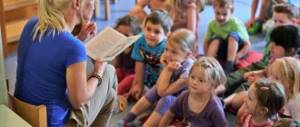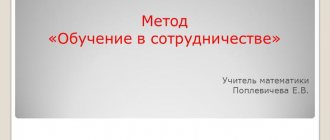Essay on the topic “Federal State Educational Standard – a new model of quality education”
Author: Elizaveta Aleksandrovna Pozdeeva, teacher of Russian language and literature.
Essay on the topic: “Federal State Educational Standards – a new model of quality education.”
Bring goodness, teach goodness
Achieve goals through difficulties.
Serve the truth with love.
I call it wisdom.
New time. New school. Transition to the new Federal State Educational Standard (FSES), which implies a new model of education. Many people have a question: is such a radical restructuring in education necessary? What could it lead to? Of course, the introduction of a new generation of Federal State Educational Standards is relevant and necessary. Socio-economic, scientific, technical, environmental and socio-cultural changes taking place in our country inevitably entail radical changes in education. What is the role of the school now? This is integration, generalization, comprehension of new knowledge, connecting it with the child’s life experience based on the formation of the ability to learn (teach oneself). Today there is a change in the paradigm of education - from the paradigm of knowledge, skills and abilities to the paradigm of development of the student’s personality. The main goal of education is not the transfer of knowledge and social experience, but the development of the student’s personality, his ability to independently set educational goals, design ways to implement them, monitor and evaluate his achievements, in other words, the formation of the ability to learn. The development of new standards is based on a system-activity approach. The competency-based approach is considered as a special case of the system-activity approach. Perhaps for the first time, a school standard is built on the basis of fundamental sciences about the child. The main task of school education is to develop the child’s readiness to master competencies, to master new knowledge, new types of activities, and to form his own further educational trajectory. This is a serious innovation in the state document. Primary school is the first step in human development, the foundation of which must be laid by the teacher in order to be confident in the future of our country. How do I see teachers at the present stage of social development in connection with the implementation of the Federal State Educational Standard?
Firstly, this is a person who loves his profession, dedicated to his work and students. This remains the same task at all times. Without this it is impossible to be a teacher and teach children.
Secondly, a professional who takes into account that every child is an individual.
Thirdly, a person is in constant search, continuous enrichment of his experience.
Fourthly, being a real teacher is a talent, because... radical changes have occurred, the priority is not to give the student a certain amount of knowledge, but to be able to teach him to learn independently, so that he does not get lost, but finds himself in the modern world. “Teach a child to learn!” Following all these rules, the teacher must change himself and change his students, rebuild them to the new requirements of our society.
At K.D. Ushinsky has wonderful words: “If you successfully choose work and put your whole soul into it, then happiness will find you on its own.” A teacher who is in love with his profession is able to achieve a lot; he has the desire and potential to develop, learn new things, and strive to meet the requirements of the modern world in connection with the implementation of the Federal State Educational Standard.
The modern learning process is focused on the teacher’s management of the cognitive activity of schoolchildren, and by the end of schooling it should be carried out according to the following scheme: students planning their activities in the lesson - their choice (or justification for the choice) of sources of information (pre-adapted for the lesson, but not containing ready-made ones) answers to asked questions) - mastering and appropriating new knowledge in the process of independent activity with these sources - self-analysis by schoolchildren of the results of their work. Thus, the role of the teacher changes: the teacher is the organizer of children’s activities. According to the developers, the main result should be adaptation to “adult life in an adult society,” that is, mastery of a set of actions that allow setting and solving life and professional tasks. The actualization of the activity approach in developing the concept of second-generation general education standards is due to the fact that its consistent implementation increases the effectiveness of education in terms of the following indicators: - making educational results socially and personally significant; - more flexible and lasting assimilation of knowledge by students, the possibility of their independent movement in the field of study; -the possibility of differentiated training while maintaining a unified structure of theoretical knowledge; — significant increase in motivation and interest in learning; — providing conditions for general cultural and personal development based on the formation of universal educational activities that ensure not only the successful acquisition of knowledge, abilities and skills, but also the formation of a picture of the world, competencies in any subject area of cognition. Project and research activities occupy a special place. To explore, to discover, to study means to take a step into the unknown and unknown. Children are explorers by nature and take part in various research activities with great interest. But the success of the research depends on the organization of the activity itself. Therefore, I try to interest the child, introduce him to the world of the unknown and gain his knowledge by discovering something new.
Life does not stand still. Children change, school changes. The teacher is constantly searching: how to teach a student to think and act independently? Indeed, in the modern world, the ability to think independently, relying on knowledge and experience, is valued much higher than just erudition, possession of a large amount of knowledge without the ability to apply this knowledge to solve life problems. It is important to form the correct civic active position in a child who comes to school, to teach him to search, think, create, do. It is precisely these important tasks that the new Federal State Educational Standard is aimed at.


